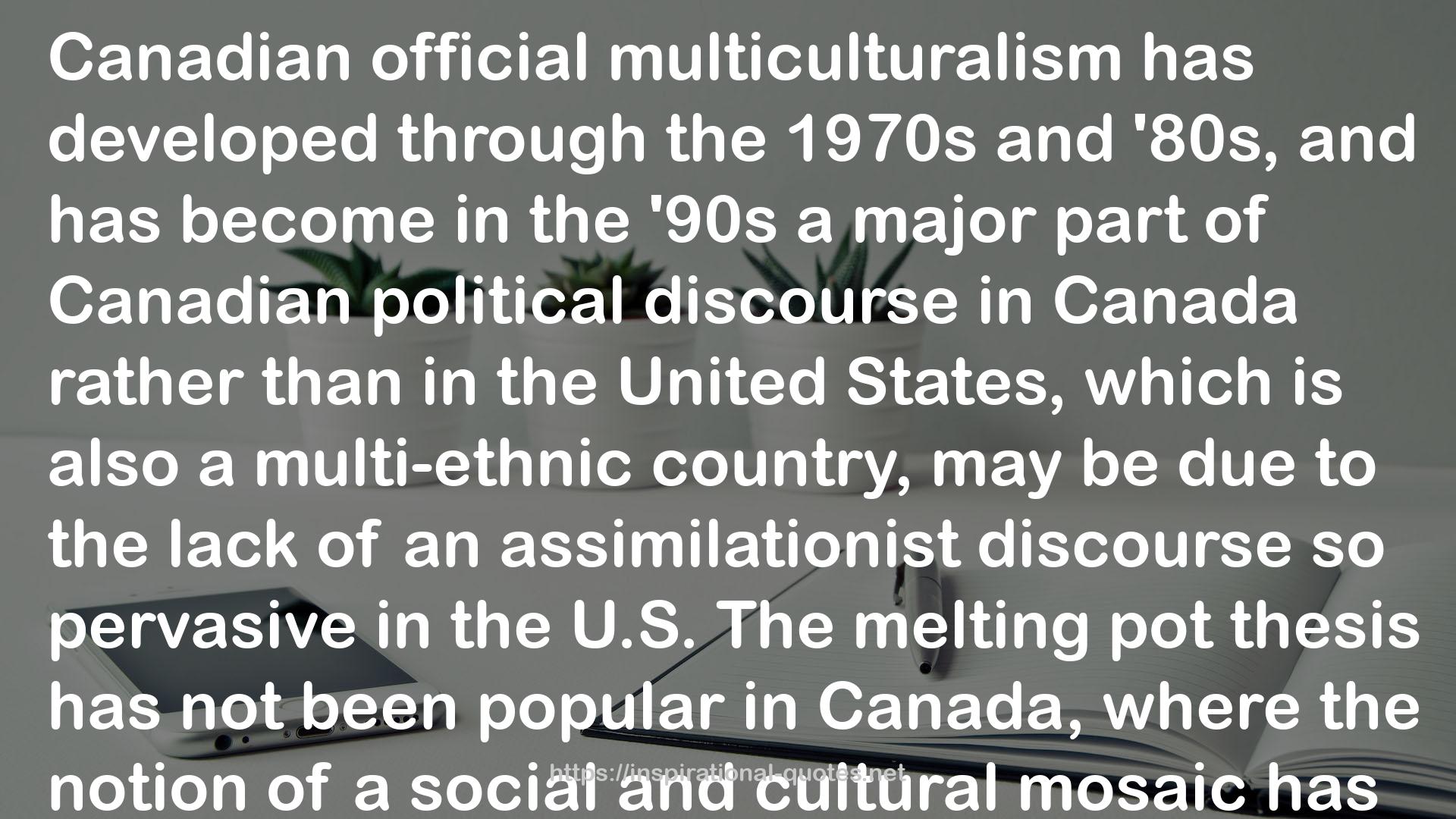" Canadian official multiculturalism has developed through the 1970s and '80s, and has become in the '90s a major part of Canadian political discourse in Canada rather than in the United States, which is also a multi-ethnic country, may be due to the lack of an assimilationist discourse so pervasive in the U.S. The melting pot thesis has not been popular in Canada, where the notion of a social and cultural mosaic has had a greater influence among liberal critics. This mosaic approach has not been compensated with an integrative politics of antiracism or of class struggle which is sensitive to the racialization involved in Canadian class formation. The organized labour movement in Canada has repeatedly displayed anti-immigrant sentiments. For any inspiration for an antiracist theorization and practice of class struggle Canadians have looked to the United States or the Caribbean. "
― , The Dark Side of the Nation: Essays on Multiculturalism, Nationalism, and Gender
